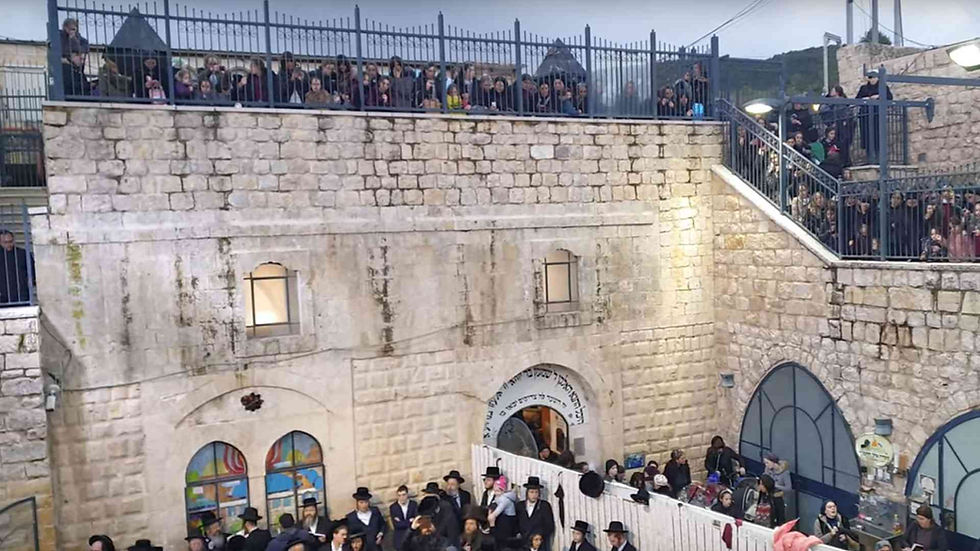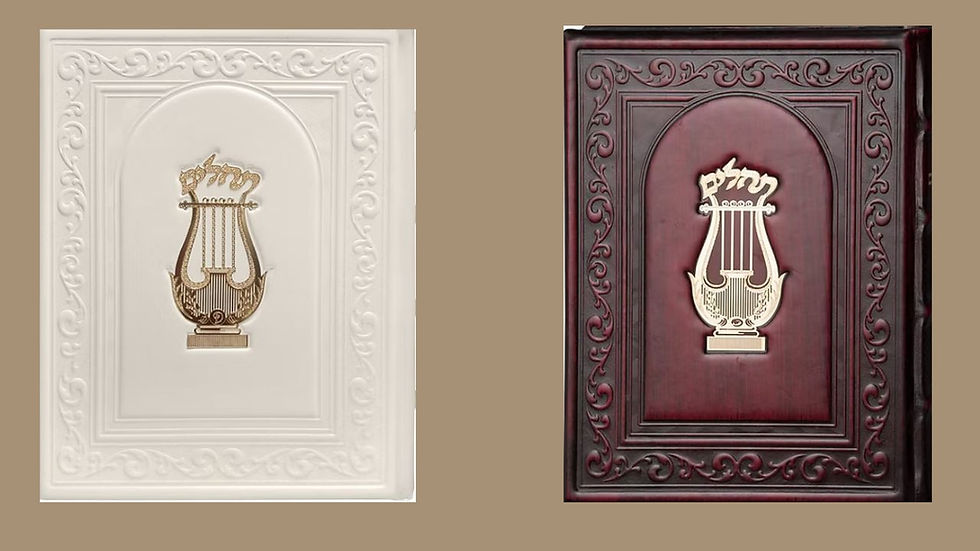Rabbi Shimon Bar Yochai:
- Yisrael
- May 15
- 3 min read
Updated: May 16
Light, Torah, and a Loving Heart - A Special Article for Lag BaOmer.

The history of Rabbi Shimon Bar Yochai
Rabbi Shimon Bar Yochai, also known by the acronym Rashbi, was a towering figure in Jewish history: a sage of Halacha, a master of Kabbalah, and one of the most devoted disciples of Rabbi Akiva.
He lived during the Roman occupation of Israel in the 2nd century CE. After boldly speaking out against the Roman regime, Rashbi was forced into hiding. He and his son, Rabbi Elazar, took refuge in a cave for 13 years—dedicating their days and nights entirely to Torah study and spiritual elevation.
During this time, he reached sublime levels of holiness and mystical understanding.
A Student of Giants
Rashbi was deeply influenced by Rabbi Akiva, who famously taught: "ואהבת לרעך כמוך זה כלל גדול בתורה"
"Love your fellow as yourself—this is a great principle in the Torah."
This value shaped Rashbi’s approach to Torah and Halacha. He often ruled with compassion, emphasizing inner intent and spiritual purpose.
He also studied under Rabban Gamliel of Yavneh, Rabbi Yehoshua ben Hananiah, and Rabbi Yehuda ben Bava absorbing both halachic rigor and expansive spiritual depth.
Rashbi's Halachic Legacy: Compassionate and Bold
Rashbi’s halachic approach, as seen throughout the Mishnah and Talmud, often focused on leniency and understanding of human intention.
Here are just a few examples of his distinctive rulings:
Unintentional violation of Shabbat – Rashbi held that someone who unknowingly violates Shabbat is exempt from bringing a sin offering (Shabbat 69a).
Actions without intent – "דבר שאינו מתכוין מותר" – "An unintentional act is permitted" (Shabbat 22a, Beitzah 23a). This became a foundational principle in Jewish law.
Benefiting from prohibited labor – Rashbi permits certain benefits derived from forbidden actions under specific conditions (Shabbat 133a).
Following Biblical reasoning – Rashbi often ruled according to the reason behind a mitzvah. In Ketubot 3a, he famously said:
“במקום שאתה מוצא טעם - אל תאמר דברי סופרים”"Where a reason is found in the Torah, do not uphold rabbinic stringency that contradicts it."
These rulings reflect Rashbi’s desire to align Halacha with divine intent, human reality, and compassion.
A Sage for Times of Distress
The Talmud states: "כדאי הוא רבי שמעון לסמוך עליו בשעת הדחק"
"It is fitting to rely on Rabbi Shimon in a time of difficulty." (Eruvin 64b, Beitzah 36a)
This line was later interpreted by the Chassidic masters not just in legal terms, but spiritually. When a Jew is in distress, emotionally, financially, or physically, they can turn to Rashbi. His merit brings comfort, guidance, and salvation.
As Rabbi Aharon of Karlin put it: “מה הקב״ה לכל – אף רבי שמעון לכל”
"Just as G-d is for all—so is Rabbi Shimon for all."
Rashbi and the Zohar: The Soul of Kabbalah
Rabbi Shimon Bar Yochai is traditionally credited with authoring the Zohar, the foundational text of Jewish mysticism.
On the day of his passing, detailed in Idra Zuta, he revealed profound secrets of the universe—turning his final moments into an eternal source of light.
One of the key teachings in the Zohar is the power of the Ketoret (incense) to stop plagues and negative forces: "וַיִּתֵּן אֶת הַקְּטֹרֶת וַיְכַפֵּר… וַתֵּעָצַר הַמַּגֵּפָה"" He offered the incense and atoned... and the plague was stopped."
The Kaf HaChaim, quoting Rabbi Chaim Palagi, wrote: “פרשת הקטורת מעשיר... ולא יופסק פרנסתו”
"The incense brings wealth, and one who keeps it will not lack sustenance."
Prayers and Customs from Rashbi
Several cherished Jewish prayers are rooted in Rashbi’s teachings from the Zohar:
Petach Eliyahu, Recited before Shacharit and Mincha in many Sephardic and mystical communities.
Brich Shemei, Said when opening the Ark during Torah reading.
Kegavna, Chanted in Hasidic circles before Friday night prayers.
These prayers reflect Rashbi’s inner world: rich in mysticism, unity, and divine love.
Lag BaOmer: A Day of Joy and Light
Lag BaOmer, the 33rd day of the Omer count, marks Rashbi’s yahrzeit and the day he revealed the secrets of the Zohar. It’s also the day Rabbi Akiva ordained him.
According to Rabbi Chaim Vital, Lag BaOmer is not a time of mourning, but a day of celebration—a spiritual holiday of light and connection.
Hundreds of thousands flock to Mount Meron, dancing around bonfires, singing, and praying. The most beloved song of the day is: “בר יוחאי נמשחת אשריך”" Bar Yochai, anointed with oil—blessed are you."
This song, written by Rabbi Shimon Lavi of Libya, is sung across Jewish communities—some even sing it every Friday night.
Rashbi Lives On
Rabbi Shimon Bar Yochai is more than a historical figure, he’s a spiritual refuge for generations. Through Torah, Kabbalah, and compassion, he continues to inspire Jews around the world. "כדאי רבי שמעון לסמוך עליו בשעת הדחק"
"It is good to trust in Rabbi Shimon during times of need."






Comments